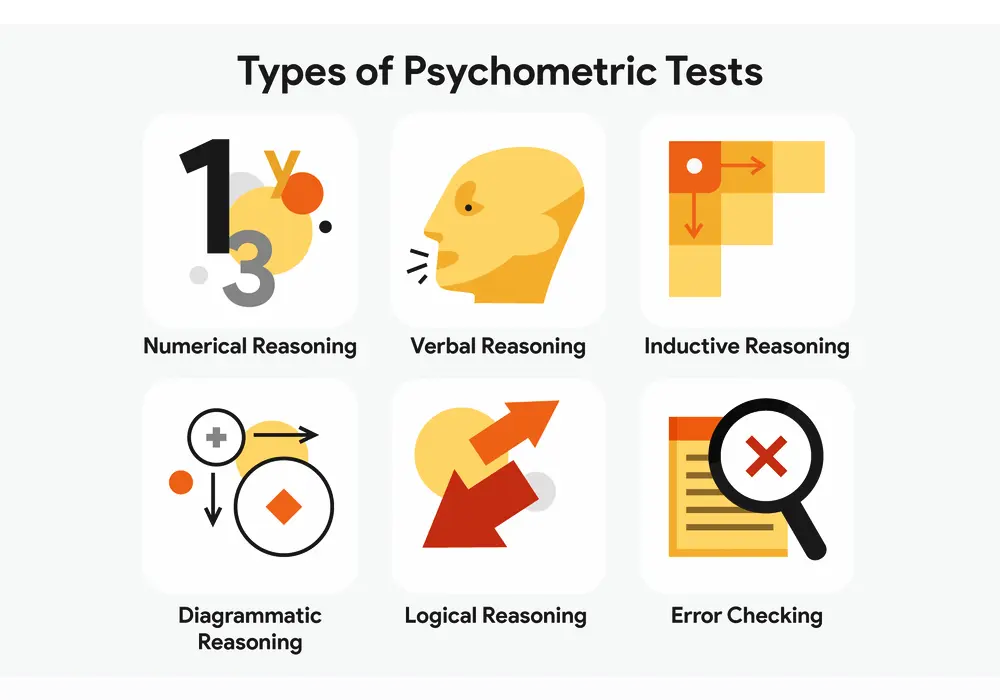In the world of recruitment, shortlisting a candidate is as easy as keeping their resume on file and scheduling an interview with them.
So long as the candidate is qualified and the recruiter feels like a match, the person can immediately get onboarded.
However, not every qualified and seemingly perfect candidate fits the role.
That’s why for decades, psychometric assessments have been used to get a better glimpse of the behavior, aptitude, thought process, disposition, intellectual quotient, and emotional quotient of each applicant.
There’s a myriad of psychometric tests out in the open.
Depending on the need, the recruiter can easily use any of them.
However, a licensed psychometrician must administer the test or under the supervision of a licensed psychologist.
These said tests like these do more than simply give insight into the psychological aspect of a person. So, what can recruiters expect from a psychometric test?
It’s Standardized

When it comes to testing writing, there are two most important things everyone should note—its validity and reliability.
By definition, validity is a psychometric component that talks about the ability of a scale to measure what it’s supposed to measure, while reliability refers to its consistency.
This means a ‘credible’ test can measure every factor it claims to measure and is consistent.
With this, as the psychometric qualities of the test increase, so does its validity and reliability quotient.
That way, the scale can measure every applicant, despite their differences in age, sexual orientation, gender identity and expression, and other demographic profiles.
Furthermore, since psychometric tests are standardized, the results indicate an accurate interpretation of the test taker’s psychological self.
Meaning, recruiters can extract nearly-accurate data that they can use to decide whether the candidate is indeed fit for the role.
It’s Complimentary Not A Replacement
Contrary to common belief, psychometric tests do not replace the standard recruitment process.
Recruiters should not expect that a step or steps of the hiring process will be replaced by having this kind of pre-employment assessment.
Getting psychometric assessment and the standard recruitment process to work hand-in-hand can make the hiring more stringent, thereby benefiting the company in the long run.
This is because a candidate’s qualifications will only fit the job list, but having the right personality that matches what’s required for the job goes a long way.
Also, being meticulous in the recruitment process is what each candidate deserves. As much as they are always putting their best foot forward, the recruitment team should do the same.
Not Everyone Can Administer It
Not everyone can administer any psychometric assessment.
The American Psychological Association sets corresponding qualification levels for each group of tests. Here are the three qualification levels of test users:
- Level A – tests that have no restriction. It can be administered, scored, and interpreted by anyone as long as they hold at least a bachelor’s degree in Psychology or any related discipline;
- Level B – tests that can only be administered by people who have a master’s degree in Psychology or any related discipline, related license, and training, and must have a corresponding certification, depending on the level B test;
- Level C – tests that a doctor-degree holder in Psychology or any related discipline can only administer.
It’s important to understand that tests belonging to each group are more robust than the previous. This means that scales in Level B that measure personality can provide more insight than those in Level A that measure the same factor.
Recruiters can use this to their advantage by ensuring that as the job position goes up in the organizational ladder, the more robust the assessment to be administered.
It’s Not Only For Pre-employment
Along with a regular mental health checkup, psychometric assessment must be conducted in all employees across all departments and units.
This ensures that the management can level with their employees and understand which hampers in everyone’s work.
Moreover, any good psychometrician knows that the results of an individual are affected by a multitude of things.
This includes mood, well-being, weather, and the like.
This implies that employees must take the same assessment in a fixed time interval—usually depending on the test itself—to assess them properly and accurately.
Employees can then be given feedback about their results to understand themselves better.
This can also help the management gain insight into how to approach their employees to fit their profiles.
For instance, some employees prefer to work at different hours but still manage to finish their work.
Creating opportunities for them to be who they are, based on their profile, can benefit the company in the long run.
Conclusion
Despite the number of advantages and positive things about psychometric assessments, they’re not enough to capture the entirety of any candidate.
However, they create more opportunities for the employers and the applicant to understand their personalities, attitudes, thinking patterns, among others, better.

